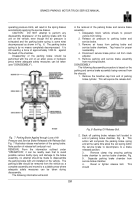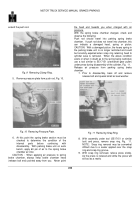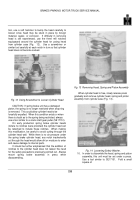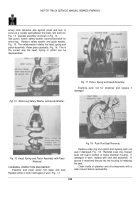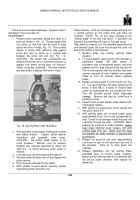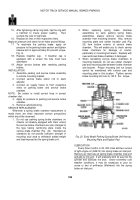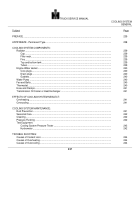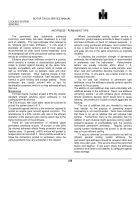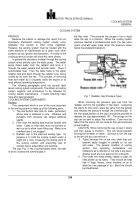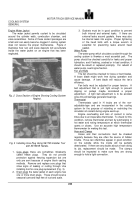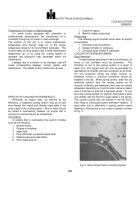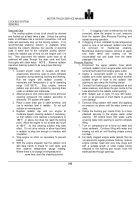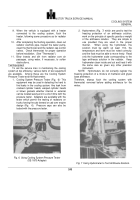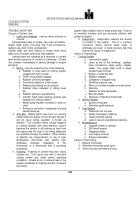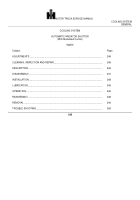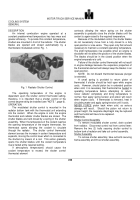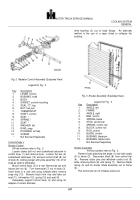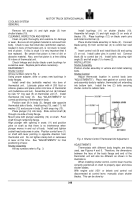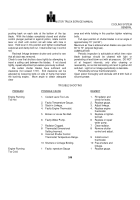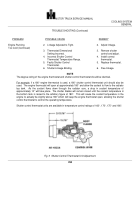TM-5-3805-254-14-P-2 - Page 245 of 894
MOTOR TRUCK SERVICE MANUAL
COOLING SYSTEM
GENERAL
Transmission Oil Cooler or Heat Exchanger
On some trucks equipped with automatic or
semiautomatic transmissions, the transmission oil is
circulated through an oil cooler or heat exchanger
.
The function of this unit is to control transmission
temperature and thereby keep oil in the proper
temperature range for its most efficient lubrication.
This
is done either by using engine heat to bring transmission
temperature up, or by using the cooling system to
dissipate any excessive heat generated within the
transmission.
Leakage due to corrosion or an improper seal will
cause contamination between cooling system and
transmission.
The effects of this condition are obvious.
EFFECTS OF COOLING SYSTEM NEGLECT
Whenever an engine does not perform at top
efficiency, a neglected cooling system may be at fault
even though the engine part directly responsible is not
even a part of the cooling system.
Most of these ills will
be traced to overheating; however, an engine that is
running too cold can be just as troublesome.
Overheating
An engine that is overheating may lead to troubles
such as the following:
1. Burned valves.
2. Pinging or knocking.
3. Vapor lock.
4. Poor lubrication increased engine wear.
5. Sticking valve and valve lifters.
6. Short spark plug life.
7. Engine hot spots.
8. Need for higher octane fuel.
Overcooling
The following engine troubles result when an engine
is overcooled.
1. Excessive fuel consumption.
2. Sludge formation in crankcase.
3. Corrosive acids formed in crankcase.
COOLING SYSTEM MAINTENANCE
Rust Prevention
To keep engines operating to new truck efficiency, all
forms of rust formation must be prevented.
The
formation of rust in the cooling system is a result of
water, iron, and oxygen and can only be prevented by
maintaining full strength corrosion protection at all times.
For rust protection during the winter months, an
antifreeze having a corrosion preventive should be
installed in the fall.
When spring arrives, drain the old
antifreeze solution from the cooling system as all
corrosion inhibitors are weakened and may be entirely
exhausted, depending on how the truck has be en taken
care of and how far and fast it has been driven.
To rust
proof the cooling system for summer driving,add a good
rust inhibitor with the first fill of clean water in the spring.
This solution should then be drained in the fall and a
fresh filling of chemically treated antifreeze installed.
A
good quick test to determine if cooling system needs
cleaning or flushing due to rust, scale or grease is shown
in Fig.
5.
Back to Top

